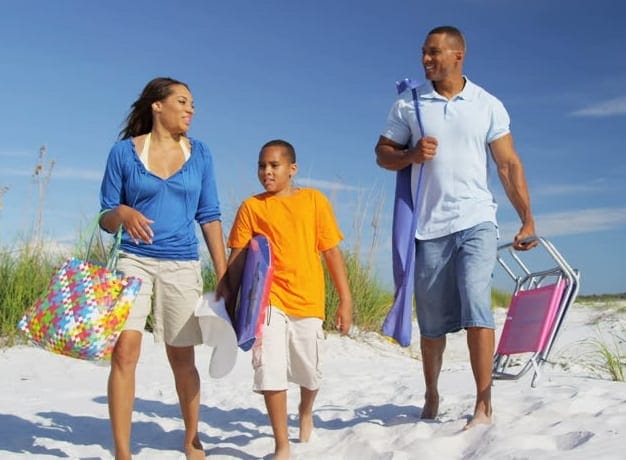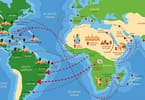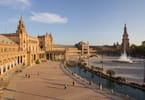The second study in a series documenting the impact of African American travelers demonstrates their growing contribution to the United States travel and tourism economy to the tune of $63 billion in 2018. The new study, completed by Mandala Research, follows up on the firm’s original study in 2010 establishing the benchmark for understanding this segment of the traveling population.
The survey polled 1,700 respondents representative of the African American population that travels.
Key takeaways from the survey:
• The economic value of African American travelers has increased in 2018 to $63 billion from $48 billion in 2010. African American “cultural” travelers are the highest spenders, with an average per trip spend of $2,078 versus $1,345 for all African American travelers.
• More than half reported that their most recent leisure destination was between 100-500 miles from home with Florida, New York City/New York, and Atlanta being top US destinations and Caribbean/Bahamas (38%) and Mexico (26%) mentioned as leading international destinations
• Food and shopping are leading spend categories with nearly half of travelers spending on local and/or regional cuisine on their most recent leisure trip. Shopping continues to be a popular activity for vacationers, most often at malls (41%) and outlet malls (34%), but also downtown (28%).
The report also highlights where and how African Americans source information on where to go, the activities they participate in, and segment analysis, looking at family reunion travelers, cultural travelers, and leisure travelers who also travel for business.
Mandala added, “We’ve been able to confirm through our many studies among domestic and international travelers that the African American story in America is one that resonates with cultural travelers of all types – the general market traveler, the international visitor — because the story of African Americans is the story of America.
African Americans have contributed to the evolution of almost every facet of our culture – music, food, dance, art, literature, academics and social change movements. The success of attractions such as the Civil Rights Trail, Mississippi Blues trail, historic Overtown in Miami, and tours of Harlem gospel choirs, all of which are attended heavily by Germans, Japanese as well as American travelers, is testament to the universal draw of the African American experience.
According to Greater Miami Convention and Visitors Bureau President and CEO William D. Talbert, III, CDME, “The African American traveler is very important to the tourism market in Miami. Arts, culture and diversity make up the fabric of the community and key findings from this report show obvious alignment with interests of African Americans to the experiences and multicultural points of interest that Miami offers to both the leisure visitor and convention attendee.”
Kevin Dallas, CEO of Bermuda Tourism Authority and study sponsor comments, “Given the rapid growth in this market segment, increasing the number of African American travelers to Bermuda is a strategic goal of our recently released National Tourism Plan. The Mandala research, paired with other qualitative and quantitative data, has convinced us that the African American travel market presents an exciting business opportunity for Bermuda’s tourism industry – we believe our destination has the cultural touchpoints that make African American travelers feel right at home out here.”
The importance of African American culture and history also plays a role in destination choice for these travelers. Sixty-four percent of cultural African American travelers, the highest spending segment of travelers, say the availability of African American cultural and heritage attractions is very important to their choice of destination for their leisure travel. For family reunion travelers, the importance of African American cultural and heritage attractions is 43%.
While the major barriers to travel are similar to the general travel market, with 28% saying they are too busy to travel and 25% reporting they can’t afford it, 15% say that concerns about racial profiling play a role in their travel decisions, similar to the impact of not having anyone to travel with, or airport hassles (13%).
According to Gloria and Solomon Herbert, publishers of Black Meetings and Tourism Magazine, “Since the last historic Green Book (Negro Travel Guide) was published in 1966, the growth in numbers and frequency of travel among African Americans continues to increase at unprecedented rates. In 2001, the African American market was identified by the United States Travel Association (USTA) as the number one fastest growing segment in the travel industry.”
They added, “Historically, Black people have tended to travel in groups for camaraderie and to some extent for protection. Now with the increased popularity of black travel clubs and networks, African American ‘baby boomers’, with more time and money, are exploring the world in a way they were never able to before. For Millennials of color, travel is being considered somewhat of a rite of passage. Now this market is actively courted through marketing and promotions by prime destinations such as Baltimore, Bermuda, Miami, Virginia, and other key markets. Their outreach makes them attractive locations for African American leisure and business travelers.”
IHE Ị GA-Ewepụ na edemede a:
- While the major barriers to travel are similar to the general travel market, with 28% saying they are too busy to travel and 25% reporting they can't afford it, 15% say that concerns about racial profiling play a role in their travel decisions, similar to the impact of not having anyone to travel with, or airport hassles (13%).
- The success of attractions such as the Civil Rights Trail, Mississippi Blues trail, historic Overtown in Miami, and tours of Harlem gospel choirs, all of which are attended heavily by Germans, Japanese as well as American travelers, is testament to the universal draw of the African American experience.
- Sixty-four percent of cultural African American travelers, the highest spending segment of travelers, say the availability of African American cultural and heritage attractions is very important to their choice of destination for their leisure travel.























